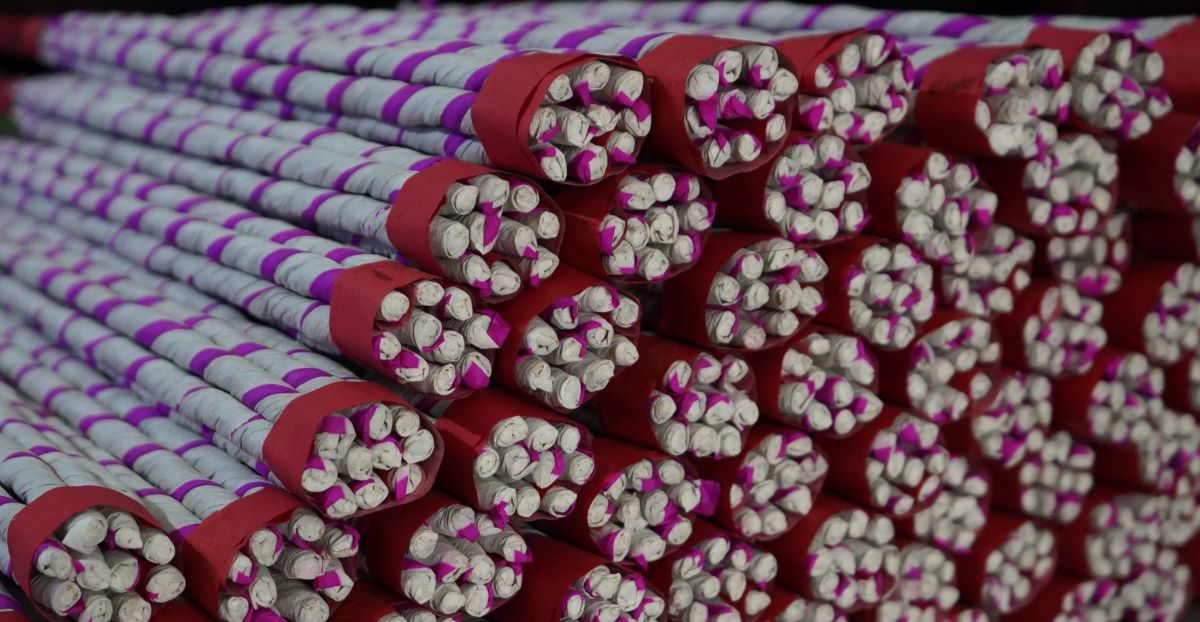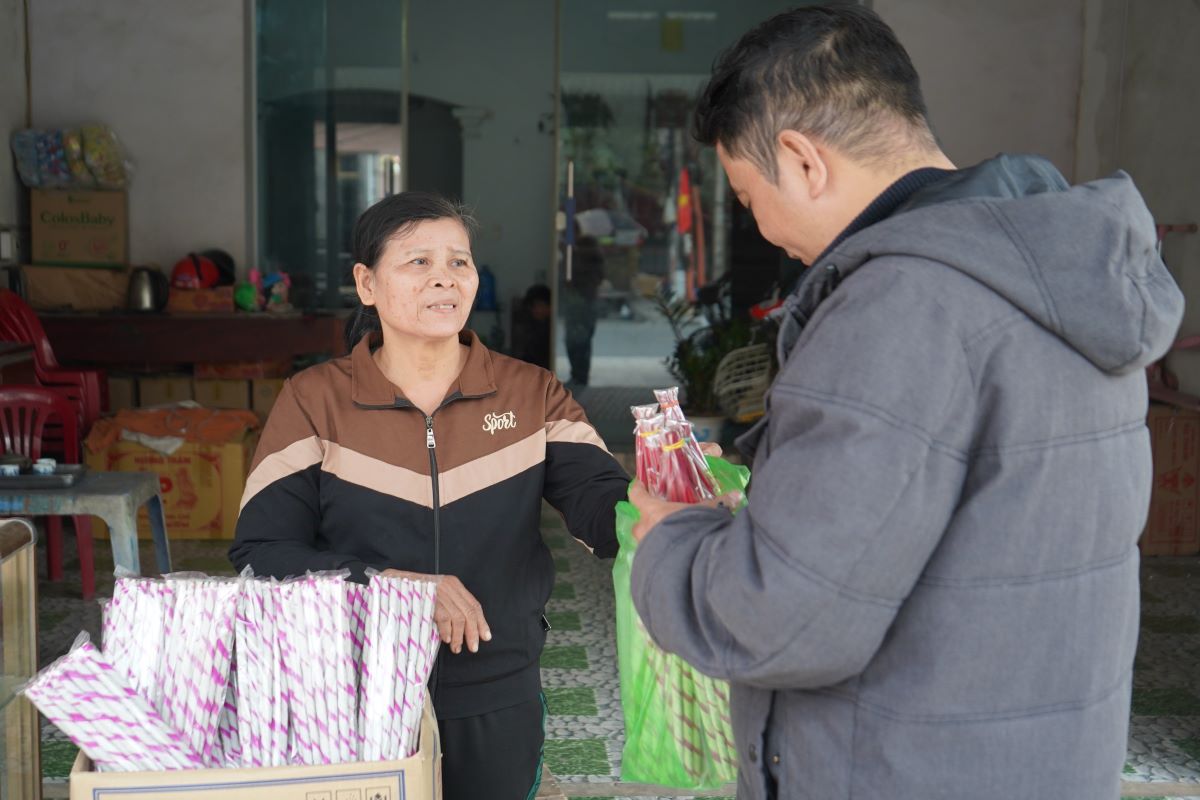Busy during Tet season in the ancient incense village
Around noon, at the house next to the Kien Bai communal house relic (Kien Bai commune, now merged with My Dong commune to form Le Hong Phong ward, Thuy Nguyen city, Hai Phong), Mrs. Bui Thi Thuan (63 years old) had just finished rolling a batch of incense in time to sell on the first day of the twelfth lunar month. On the first floor, Mr. Pham Duc Thai (64 years old, Mrs. Thuan's husband) was in charge of wrapping and packaging the incense.
Born and raised in Kien Bai, Mr. Thai has spent half his life making traditional incense sticks. According to him, the incense making profession is a "father-to-son" profession, passed down from generation to generation. Previously, half of the elders of Kien Bai village made incense sticks, but now only a few households still do. Mr. Thai's family makes incense sticks all year round, some households only make them during Tet.

According to Mr. Thai and his wife, to prepare for Tet, incense makers have to go out of their way to find raw materials from bamboo to incense cores to vetiver roots 2-3 months in advance. After being collected, vetiver roots must be dried, crushed many times to make a very fine powder before being rolled into paper. "The finer the powder, the more fragrant the incense when burned, with less ash, helping Kien Bai vetiver incense to be favored by customers," said Ms. Thuan.
This Tet season, Mrs. Thuan and Mr. Thai's family plans to make about 40,000 incense sticks to sell to wholesalers and retailers in Hai Phong and neighboring provinces such as Quang Ninh, Thai Binh, Hai Duong, and Hanoi. Compared to other times of the year, the output has increased by 30 times, but the incense sticks are still "sold out" as soon as they are made thanks to their characteristic aroma, bringing the right taste of Tet.
Concerns about the decline of traditional craft villages
Although Kien Bai incense products are famous, up to now, there are very few local households that still maintain the traditional profession. The representative of Kien Bai commune (now Le Hong Phong ward) said that incense products cannot be registered for OCOP product certification because production is still fragmented, the whole commune only has about 5-6 households producing incense, mainly producing incense by hand for Tet.
Handcrafted incense in Kien Bai is difficult to compete in terms of design and price with other incense-making regions in the country that are larger in scale. Not to mention, the diverse labor market makes young people in the village no longer interested in the year-round hard, dusty job of making incense with unstable income.

Like Mr. Thai's family, his two children did not follow their father's traditional incense making profession but instead worked as factory workers, helping their parents make incense in their free time. At the age of U70, Mr. Thai and his wife still work diligently every day with card powder and glue, producing tens of thousands of handmade incense bundles at the end of the year to deliver to customers. Because for Mr. Thai, it is not only a daily job but also to maintain their father's profession, preserving the traditional Tet flavor.











